第17章 THE BONES OF KAHEKILI(8)
"Do you know, Kanaka Oolea, the priest talked a language largely different, and I know it was the priest language, the old language.Maui he did not name Maui, but Maui-Tiki-Tiki and Maui-Po-Tiki.And Hina, the goddess-mother of Maui, he named Ina.And Maui's god-father he named sometimes Akalana and sometimes Kanaloa.Strange how one about to die and very thirsty should remember such things! And I remember the priest named Hawaii as Vaii, and Lanai as Ngangai.""Those were the Maori names," Hardman Pool explained, "and the Samoan and Tongan names, that the priests brought with them in their first voyages from the south in the long ago when they found Hawaii and settled to dwell upon it.""Great is your wisdom, O Kanaka Oolea," the old man accorded solemnly."Ku, our Supporter of the Heavens, the priest named Tu, and also Ru; and La, our God of the Sun, he named Ra--""And Ra was a sun-god in Egypt in the long ago," Pool interrupted with a sparkle of interest."Truly, you Polynesians have travelled far in time and space since first you began.A far cry it is from Old Egypt, when Atlantis was still afloat, to Young Hawaii in the North Pacific.But proceed, Kumuhana.Do you remember anything also of what the priest Eoppo sang?""At the very end," came the confirming nod, "though I was near dead myself, and nearer to die under the priest's knife, he sang what I have remembered every word of.Listen! It was thus."And in quavering falsetto, with the customary broken-notes, the old man sang.
"A Maori death-chant unmistakable," Pool exclaimed, "sung by an Hawaiian with a tattooed tongue! Repeat it once again, and I shall say it to you in English."And when it had been repeated, he spoke it slowly in English:
"But death is nothing new.Death is and has been ever since old Maui died.Then Pata-tai laughed loud And woke the goblin-god, Who severed him in two, and shut him in, So dusk of eve came on.""And at the last," Kumuhana resumed, "I was not slain.Eoppo, the killing knife in hand and ready to lift for the blow, did not lift.And I? How did I feel and think? Often, Kanaka Oolea, have I since laughed at the memory of it.I felt very thirsty.I did not want to die.I wanted a drink of water.I knew I was going to die, and I kept remembering the thousand waterfalls falling to waste down the pans" (precipices) "of the windward Koolau Mountains.I did not think of Anapuni.I was too thirsty.I did not think of Malia.I was too thirsty.But continually, inside my head, I saw the tongue of the harpooner, covered dry with sand, as I had last seen it, lying in the sand.My tongue was like that, too.And in the bottom of the canoe rolled about many drinking nuts.Yet I did not attempt to drink, for these were chiefs and I was a common man.
"'No,' said Eoppo, commanding the chiefs to throw overboard the coffin.'There are not two moepuus, therefore there shall be none.'
"'Slay the one,' the chiefs cried.
"But Eoppo shook his head, and said:'We cannot send Kahekili onhis way with only the tops of the taro.'
"'Half a fish is better than none,' Aimoku said the old saying.
"'Not at the burying of an alii,' was the priest's quick reply.'It is the law.We cannot be niggard with Kahekili and cut his allotment of sacrifice in half.'